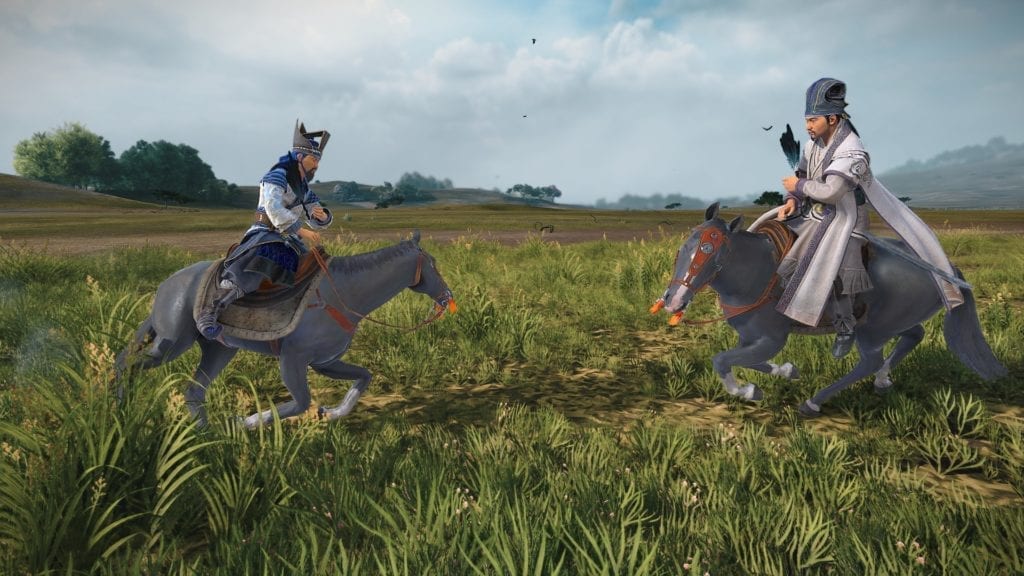
Ma Chao attempted to prevent him from crossing the Wei River, the final obstacle between him and the rear of Ma Chao's army, but Cao Cao defeated him in a night ambush. However, Cao Cao outmaneuvered them by crossing the bend of the Huang River twice at Dou and Puban, putting himself behind the pass. They opposed Cao Cao at Tong Pass, the gateway to Chang'an.

However, when Cao Cao announced his intention to march against Zhang Lu of Hanzhong, Ma Chao grew suspicious that Cao Cao would use this as an excuse to take his autonomy away, and formed a rebel army along with Han Sui, effectively abandoning his father and family in Ye. Ma Chao was left in charge of his troops. His father soon requested and was granted permission to take a post in the imperial court in Ye. He did however, join an expedition in support of Zhong Yao's administration in the capitol region of Hedong in 202AD, driving away the Yuan forces with his subordinate, Pang De. Cao Cao reportedly asked for Ma Chao to come to the capitol to serve in the government, but Ma Chao refused. Peace was brokered between the two men by Cao Cao's agent Zhong Yao in 197AD, and they both acknowledged Cao Cao's suzerainty. His father and another warlord, Han Sui, went to war with each other over Liang, resulting in the death of Ma Chao's mother and some of his siblings.

Ma Chao grew up during the turbulent chaos of the Liang rebellion and the fallout of the splintering of Dong Zhuo's army. Born in 176AD in Youfufeng Commandery in Sili province, Ma Chao was the eldest son of Ma Teng, at the time just another frontiersman near the western capitol, but eventually a warlord in the Liang rebellion.


 0 kommentar(er)
0 kommentar(er)
